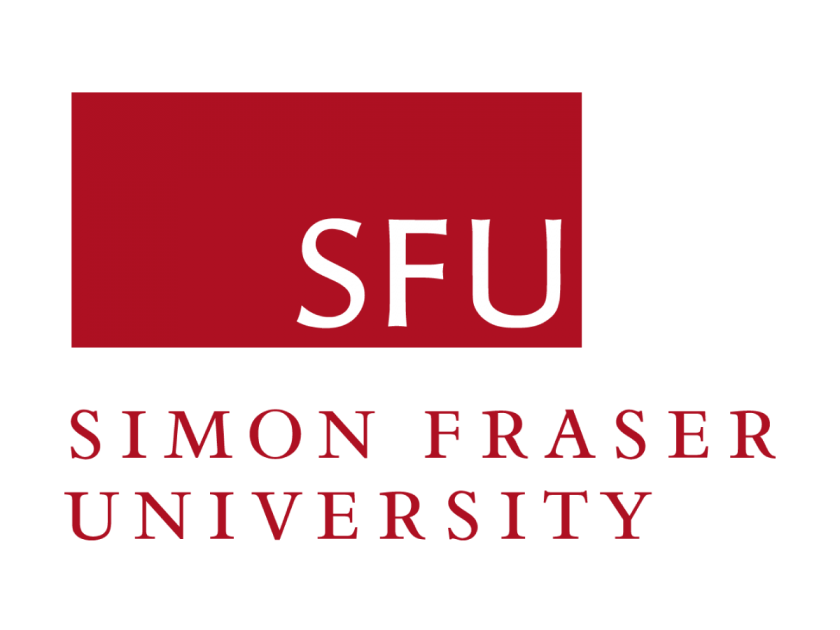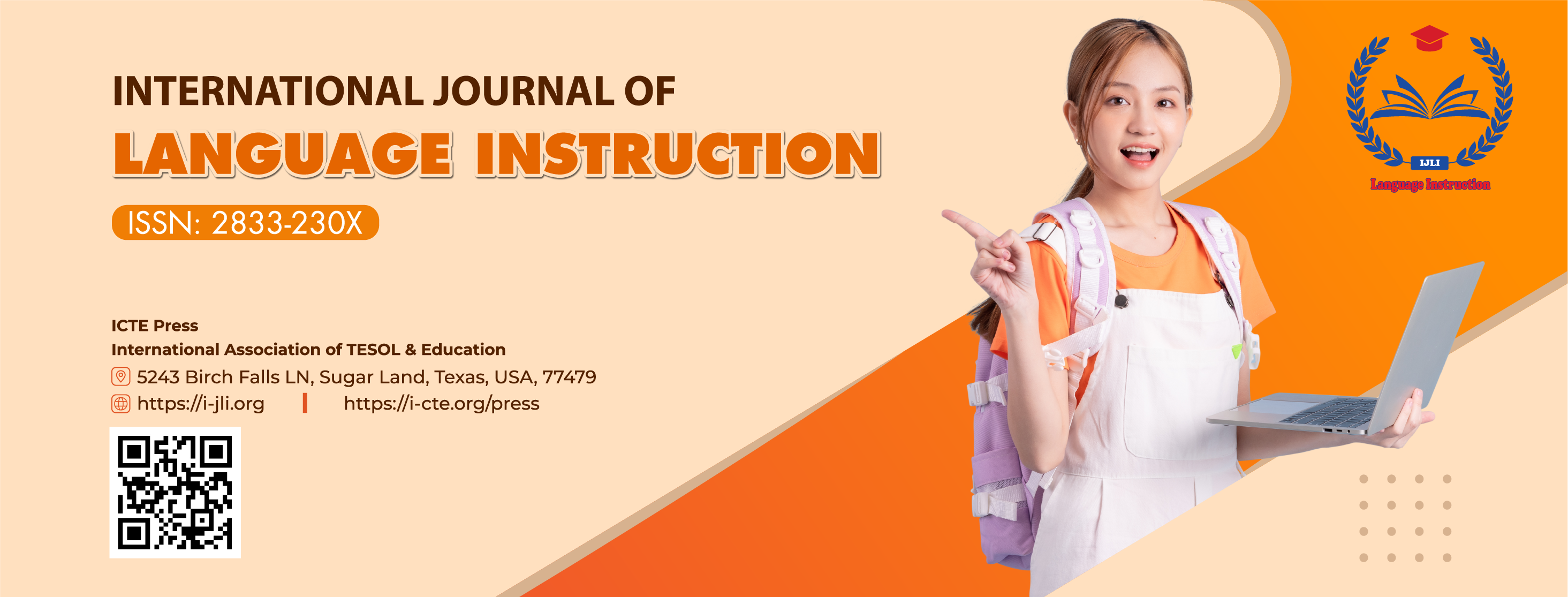Using Apology Strategies in Letters by EFL Students at University of Foreign Language Studies – The University of Danang
DOI:
https://doi.org/10.54855/ijli.22121Keywords:
Apology strategies; direct apology strategies; indirect apology strategies; letters of apology; second-year students.Abstract
The act of apologizing in communicative activities is one of the elements of speech acts. Therefore, selecting and using appropriate apology strategies could possibly create effective communication. The article investigates apology strategies used in letters written in English by second-year students at the Faculty of English, University of Foreign Languages, The University of Danang (UFLS-UD). Regarding the aim to identify apology strategies, the frequency of direct and indirect apology strategies, descriptive qualitative methods with the support of quantitative information were employed and based on the data from 282 letters of apology which were collected from 04 EFL classes in the academic school year 2021-2022. The article provides readers with a deep insight into apology strategies and assists EFL learners in understanding and using appropriate apology strategies in specific communicative situations.
References
Altayari, D.R. (2017). A Sociolinguistic Study of the Speech Act of Apology by Saudi Speakers. Humanity & Social Sciences Journal, 12 (2), 37- 44.
Bataineh, R. F. (2008). A cross-cultural comparison of apologies by native speakers of American English and Jordanian Arabic. Journal of Pragmatics,40(4), 792-821.
Blum-Kulka, S., House, J., Freedle, R., & Kasper, G. (Eds.). (1989). Cross-cultural pragmatics: Requests and apologies (Vol. 31). Greenwood Press.
Cohen, A. D., Olshtain, E., & Rosenstein, D. S. (1986). Advanced EFL apologies: What remains to be learned? International Journal of the Sociology of Language, 62, 51–74.
Demeter, G. (2006). Explicit apologies in English and Romanian: A construction grammar approach. Paper presented at the 11th International Pragmatics Conference, Melbourne, Australia.
Deutschmann, M. (2003). Apologising in British English. Doctoral dissertation, Umeå universitet.
Fraser, B. (1981). On apologizing. In F. Coulmas (Ed.), Conversational Routine (pp. 259-271). Mouton de Gruyter.
Holmes, J. (1990). Apologies in New Zealand English. Language in society, 19(2), 155-199.
Holmes, J. (1995). Sex differences and apologies: One aspect of communicative competence. Readings on second language acquisition, 362-385.
Hussein, R., & Hammouri, M (1998). Strategies of Apology in Jordanian Arabic and American English. Grazer Linguistische Studien, 7(49), 37-50.
Kecskes, I. & Romero-Trillo, J. (2013). Research trends in intercultural pragmatics. Mouton de Gruyter.
Lê, P. T. (2011). Translational variation in linguistic politeness in Vietnamese: Australia and Vietnam. Doctoral dissertation, Victoria University.
Ngô Thị Hiền Trang & Lưu Quý Khương. (2022). A lexicogrammar approach to analyze response strategies to apology in English conversations. International Journal of English Language Studies, 4(1), 45-50. https://doi.org/10.32996/ijels.2022.4.1.6
Ngo, T. H. T (2022). An investigation into apology strategies and lexicogrammatical realizations of apology utterances in English conversations. International Journal of Humanities, Philosophy and Language, 5 (17), 107-120. https://doi.org/10.35631/IJHPL.517008
Ngo, T. H. T., & Luu, Q. K. (2022). Direct Direct Apology Strategies and Their Lexicogrammatical Realizations in English Conversations: Implications for EFL Students. International Journal of TESOL & Education, 2(2), 82–94. https://doi.org/10.54855/ijte.22225
Owen, M. (1983). Apologies and remedial interchanges: A study of language in social interaction. Mouton.
Qadoury, A. (2011). Pragmatic Transfer in Iraqi EFL Learners’ Refusals. International Journal of English Linguistics, 1(2), 166-175.
Qari, I. (2017). Politeness study of requests and apologies as produced by Saudi Hijazi , EFL learners , and British English university students. Unpublished doctoral dissertation, University of Roehampton.
Shardakova, M. (2005). Intercultural pragmatics in the speech of American L2 learners of Russian: Apologies offered by Americans in Russian. Intercultural Pragmatics, 2(4), 423-451.
Shariati, M. & Chamani, F. (2010). Apology strategies in Persian. Journal of Pragmatics, 42(6), 1689-1699.
Sienes, M. J. V., & Catan, J. E. C. (2021). The Speech Act of Apology by Filipino Call Center Agents. International Journal of TESOL & Education, 2(1), 117–128. https://doi.org/10.54855/ijte.22218
Trang, N. T. H. (2017). Why and how university students apologize to their lecturers: The case of University of Foreign Language Studies, Vietnam. Journal of Nusantara Studies (JONUS), 2(2), 79-87.
Trosborg, A. (2011). Interlanguage pragmatics: Requests, complaints, and apologies (Vol. 7). Walter de Gruyter.
Vollmer, H.J., & Olshtain, E. (1989). The language of apologies in German. In S. Blum-Kulka & J. House & G. Kasper (Eds), Crosscultural pragmatics: Request and apologies (pp. 197-218). Albex.
Wannaruk, A. (2008). Pragmatic transfer in Thai EFL refusals. RELC Journal, 39(3), 318-337.
Downloads
Published
Issue
Section
License
Copyright (c) 2022 Ngo Thi Hien Trang

This work is licensed under a Creative Commons Attribution-NonCommercial 4.0 International License.
The copyright of all articles published in the International Journal of Language Instruction (ijli) remains with the Authors, i.e. Authors retain full ownership of their article. Permitted third-party reuse of the open access articles is defined by the applicable Creative Commons (CC) end-user license which is accepted by the Authors upon submission of their paper. All articles in the ijli are published under the CC BY-NC 4.0 license, meaning that end users can freely share an article (i.e. copy and redistribute the material in any medium or format) and adapt it (i.e. remix, transform and build upon the material) on the condition that proper attribution is given (i.e. appropriate credit, a link to the applicable license and an indication if any changes were made; all in such a way that does not suggest that the licensor endorses the user or the use) and the material is only used for non-commercial purposes.
Authors are able to enter into separate, additional contractual arrangements for the non-exclusive distribution of the journal's published version of the work (e.g., post it to an institutional repository, in a journal or publish it in a book), with an acknowledgment of its initial publication in this journal.











